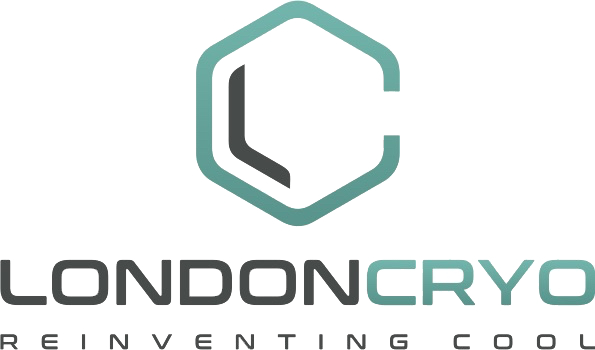Whole Body Cryotherapy and Mental Wellness
It is widely known that Whole Body Cryotherapy can be used to treat rheumatism and sports injuries but did you know that it can be hugely beneficial for your mental health too?
Studies have shown that people who suffer from sleep problems, anxiety and depression can be greatly helped by cryotherapy. At a time when mental health issues are on the increase it is time to look for additional therapies to support people alongside counselling and other initiatives.
The charity MIND has stated that in England 1 in 4 people will face a mental health challenge each year and that 1 in six people experience every week mental health problems like depression and anxiety. The ONS published last year its annual data that showed male suicide rates remain the highest they have been since 2000.
Sadly, COVID-19 and the repeated lockdowns this has caused even more challenges for people of all ages and backgrounds.
Medical management consists of various types of therapy, medication and complimentary therapy, however often people are slow to receive these either due to waiting lists or because people are unaware of the problems they are having or don’t want to address the issues they have (Andrade, et al., 2013).
Could Whole Body Cryotherapy form part of the answer for people looking for supportive therapies to their other treatments?
One study has revealed that Whole Body Cryotherapy induced relaxation, mood elevation, memory enhancement, a significant decrease in tension and fatigue and a boost in energy levels (Rymaszewska, Bialy, Zagrobelny, & Kiejna, 2000). It’s also been shown that just 15 sessions of Whole Body Cryotherapy can actually reduce symptoms of both depression and anxiety (Rymaszewska, Ramsey, Chładzińska-Kiejna, & Kiejna, 2007).
It is clear that cryotherapy can be hugely beneficial in improving general wellbeing. Whole Body Cryotherapy has an impact on the hypothalamic-pituitary axis and monoamine regulation (important for controlling stress), increased beta-endorphin levels (for positive mood) and hippocampal brain-derived neurotrophic factor normalisation (for promoting the survival of nerve cells) (Rymaszewska, Ramsey, & Chładzińska-Kiejna, 2008).
In essence, the body becomes able to deal with stressful situations through behavioural changes such as improved cognition, euphoria, and enhanced analgesia (Smith & Vale, 2006). It also improves cognition, complex behaviours, learning and memory - providing notable benefits on mental health conditions (Lu, Naggapan, & Lu, 2014).
A study from 2008 (Rymaszewska, Ramsey, & Chładzińska-Kiejna ) also showed that Whole Body Cryotherapy can help to promote sleep in people with insomnia through the regulation of monoamine neurotransmitters.
Monoamine neurotransmitters play a major role in the regulation of sleep-wake cycle. Hence, an imbalance in these neurotransmitters can result in the disruption of a good sleep (Hurd, 2011).
It is clear that Whole Body Cryotherapy is an interesting and complimentary treatment alongside traditional mental health therapies.
It provides immediate energy-boosting and mood-enhancing feelings. At LondonCryo were also ensure it is provided in a relaxing setting, too to ensure you get the very best from your time with us.
If you would like to try cryotherapy as a way of helping you with your mental health, don’t hesitate to get in touch.
Biblography:
• Anxiety and Depression Association of America. (2016, August). Retrieved August 25, 2016, from Anxiety and Depression Association of America: https://www.adaa.org/about-adaa/press-room/facts-statistics
• Hurd, R. (2011, March 23). Retrieved August 26, 2016, from Livestrong: http://www.livestrong.com/article/136959-how-does-serotonin-affect-sleep/
• Mayo Clinic. (2014, April 4). Retrieved August 26, 2016, from Mayo Clinic: http://www.mayoclinic.org/diseases-conditions/insomnia/basics/causes/con-20024293
• National Institute of Mental Health. (2015). Retrieved August 25, 2016, from National Institute of Mental Health: http://www.nimh.nih.gov/health/statistics/prevalence/major-depression-with-severe-impairment-among-adults.html
• Rymaszewska, J., Bialy, D., Zagrobelny, Z., & Kiejna, A. (2000). The influence of wholebody cryotherapy on mental health. . Psychiatria Polska , 649 – 653.
• Rymaszewska, J., Ramsey, D., & Chładzińska-Kiejna, S. (2008). Whole-body cryotherapy as adjunct treatment of depressive and anxiety disorders ArchivumImmunologiae et Therapia Experimentalis, 63 – 68.
• Rymaszewska, J., Ramsey, D., Chładzińska-Kiejna, S., & Kiejna, A. (2007). Can short-term exposure to extremely low temperatures be used as an adjuvant therapy in the treatment of affective and anxiety disorders? Psychiatria Polska, 625 – 636.
• Smith, S. M., & Vale, W. W. (2006). The role of the hypothalamic-pituitary-adrenal axis in neuroendocrine responses to stress. Dialogues in Clinical Neuroscience, 383 – 395.

